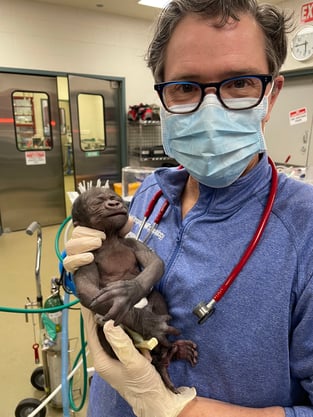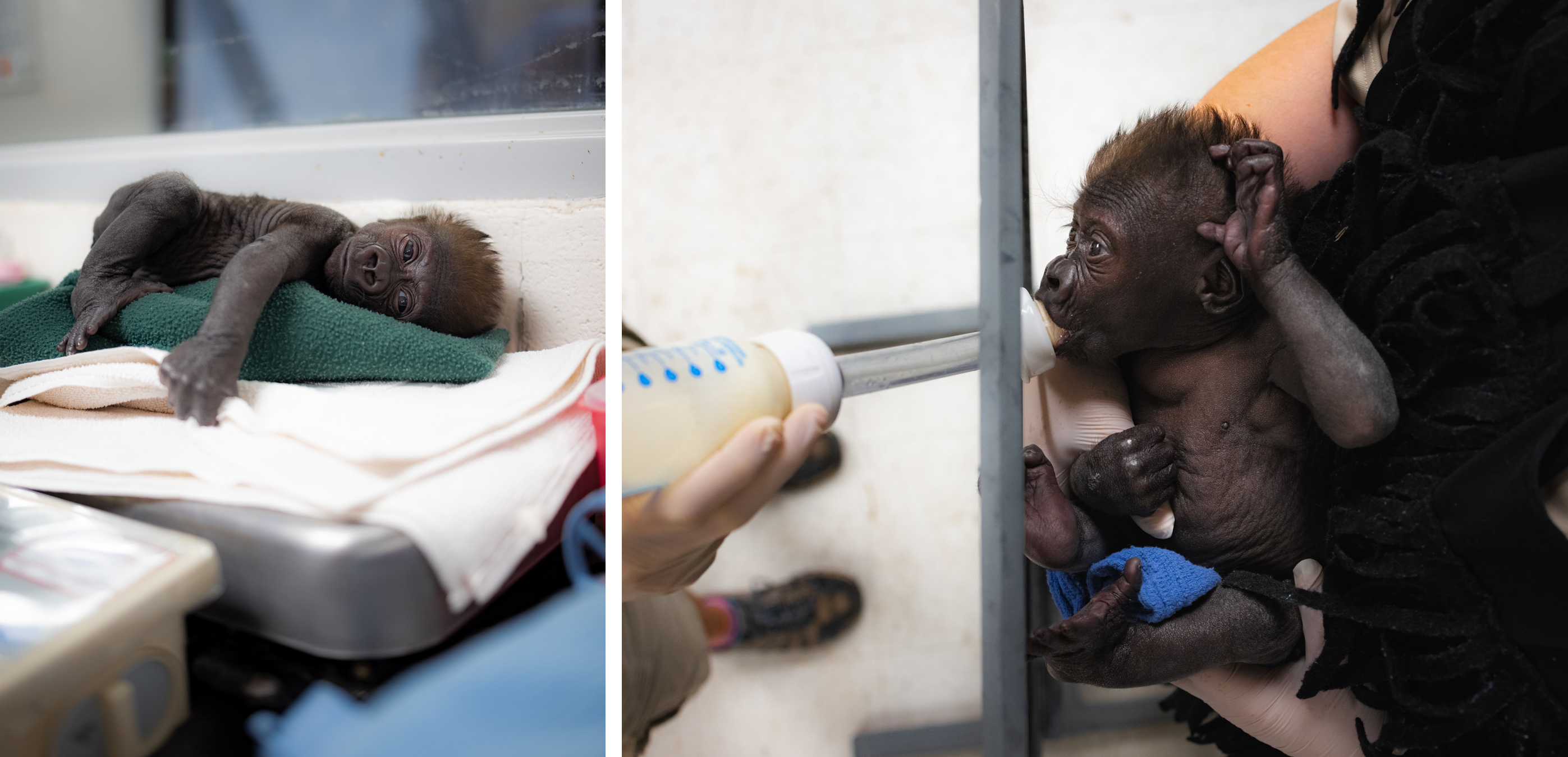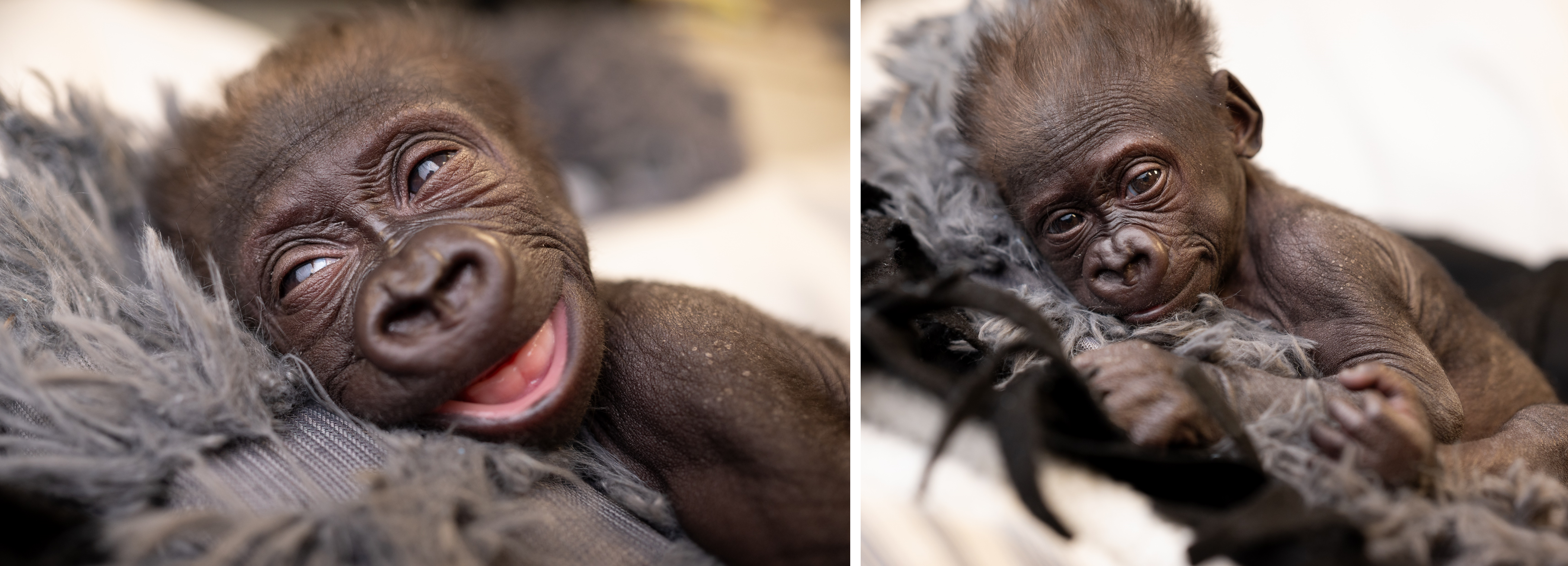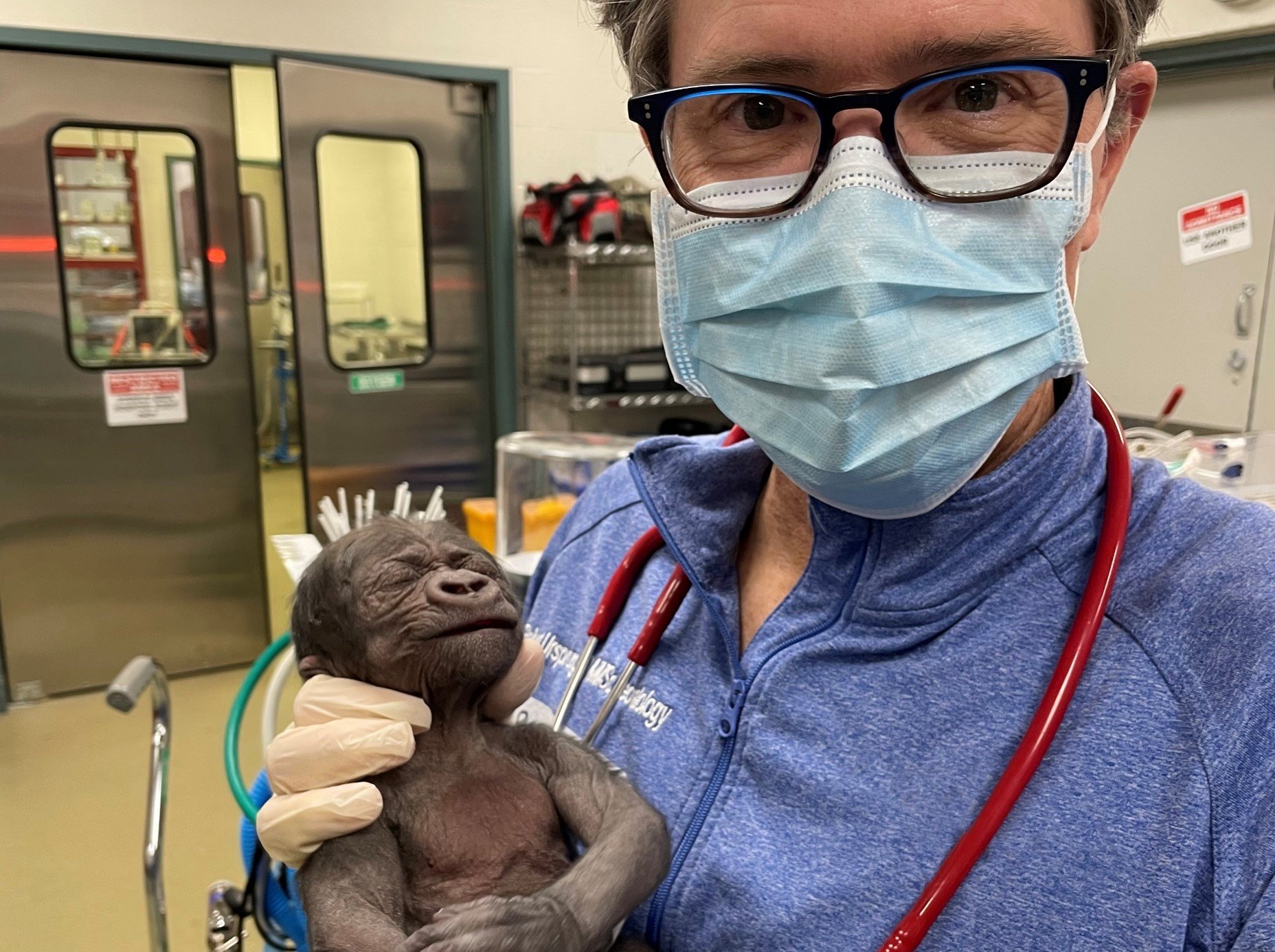The Fort Worth Zoo recently announced the birth of a premature female gorilla successfully delivered via emergency cesarean section (C-section) on Jan. 5, after life-threatening complications impacted the health of the mother and baby. This is the Zoo’s first gorilla to be born via C-section, requiring life-saving care for the mother and premature infant gorilla provided by medical experts from the human world, including neonatologists Robert Ursprung, M.D., MMSc, and Chad Barber, M.D., of Pediatrix® Neonatology of Texas.

Primates are humans’ closest living relatives in the animal kingdom with many biological similarities. The Zoo veterinary team has consulted with physicians for humans in the past to seek advice on certain cases involving primates. Sekani, a 33-year-old female gorilla, was pregnant with her fourth offspring and had a routine pregnancy with an expected due date of early- to mid-February.
On Jan. 3, zookeepers observed that Sekani was exhibiting symptoms of preeclampsia, a serious blood-pressure condition that can occur during pregnancy in both humans and primates. Given the preeclampsia diagnosis, along with the prematurity of the baby gorilla, Zoo staff and veterinarians consulted with local medical experts and agreed that an emergency cesarean would need to take place. Sekani would be put under general anesthesia, carrying more risk to the baby.
Just one day ahead of the infant’s arrival, Dr. Ursprung began consulting with the veterinary team and swiftly worked to develop a post-delivery care plan that included assessment of the room setup and available equipment.
On Jan. 5, an obstetrician successfully performed Sekani’s cesarean. The infant, named Jameela, was born five weeks early and required immediate intervention by Dr. Ursprung and Dr. Barber, including resuscitation and stabilization, respiratory support, radiographs and serial examinations.
“The Zoo had most of the equipment we needed, however they could not do a mechanical ventilation, so we were hopeful Jameela would not need that,” said Dr. Ursprung. “Her resuscitation was not so different from a moderate preterm infant with continuous positive airway pressure and positive pressure ventilation from an anesthesia bag. She eventually transitioned to a high flow nasal cannula and then to room air by three to four hours of age. She only weighed 3 pounds, 1 ounce, and she needed help with thermoregulation, so it was nice that the Zoo had heat lamps, warm blankets and an incubator.”
While these tools wouldn’t have been sustainable for weeks, which is often the length of stay for a human baby in the neonatal intensive care unit (NICU), baby Jameela fortunately only required respiratory support for hours.

“Once her respiratory depression (from maternal general anesthesia) resolved and her retained lung fluid cleared, she turned into a typical later premature infant who just needed help with oral feeding and temperature regulation,” said Dr. Ursprung. “This mom just had a C-section and she’s not able to care for this baby, so we couldn't just reintroduce it to mom like you would with a normal pregnancy. It was clear this baby couldn’t survive without any help in the early days.”
Despite repeated attempts to reunite the mother and baby, Sekani showed little interest in caring for Jameela, likely because she never experienced the necessary hormone cues that come during natural and full-term birth, therefore, resulting in disinterest in the baby. “I think the overall medicalization and the unhealthiness at the end of pregnancy is probably what's made this challenging for her to bond and partner,” said Dr. Ursprung.
For more than a month, Dr. Ursprung consulted with Zoo staff to help optimize the baby’s temperature regulation and nutritional strategy, including oral feeding.

“Jameela had so many features typical of a slightly premature human baby,” said Dr. Ursprung. “For example, her oral coordination was immature as expected for her degree of prematurity. I asked one of the speech therapists I work with to assess her coordination and work with the care team on feeding techniques that would make it more efficient for a premature baby, which we do in the NICU all the time. This allowed her to orally feed safely without us needing to do tube feedings, minimizing the risk of aspiration pneumonias.”
As the baby progressed each week, Dr. Ursprung helped the team match where the baby’s feeding skill set was over time. Because mother’s milk and donor milk weren’t an option as it typically is for a human baby, Jameela was fed a premature formula that made sense for a human baby at that size and amount of gestation.

She is now eating well and growing well, and the focus has shifted to her social interaction with the troop. After two weeks and several unsuccessful attempts, Zoo staff made the critical decision to shift focus to training 24-year-old female gorilla Gracie to become a surrogate mother to the now-thriving baby. Zookeepers are hopeful Gracie will be an ideal surrogate mother and that Jameela will ultimately be an integrated member of the troop.
“The Zoo's care team was incredible,” said Dr. Ursprung. “Their ability to adapt to the care needs of a medically fragile infant was amazing to watch. This was an extraordinarily unique career highlight. It’s been a privilege to learn from the Zoo team and contribute some of a neonatologist’s special knowledge to give this little baby the best chance to flourish.”

Learn more about our neonatology services or find care in your area.
